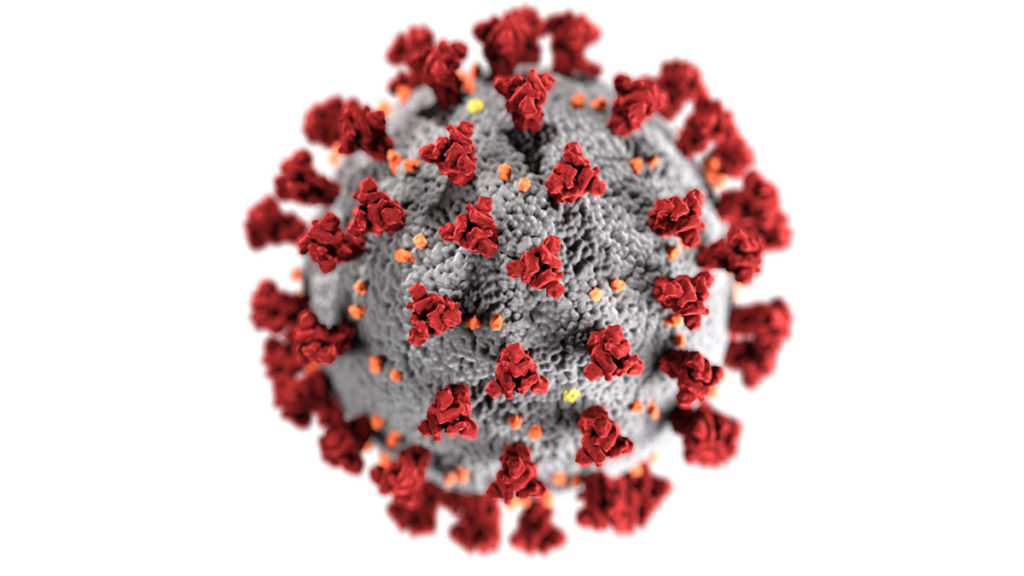
Revised – November 19, 2021
The vast majority of Americans have pulled together during the coronavirus pandemic.
There have been a lot of disruptions and a ton of misery for many businesses. While some of the pain has been a tragic byproduct of the pandemic, some has been intentional by a few dishonest souls.
Since the pandemic began, several scams have popped up. Some are variations on old scams, while others are new. Whether you are a consumer or a small business, you have to protect yourself more than ever.
Here are several scams that have been occurring more and more frequently since the start of the pandemic.
Watch Out for These Coronavirus Scams
Here are some of the coronavirus scams currently making the rounds.
Fake contact tracers. Contact tracers work for state health departments and track people who may have been exposed to Covid-19. They provide a vital function in stemming the spread from one person to another. The scammers pretend to be contact tracers to steal your identity and empty your bank accounts.
A legitimate tracer will contact you to discuss Covid-19 test results, either for you or someone you know. Legitimate tracers will only ask you for limited information (name, address, health information, and names and places you have recently visited). As we’ve progressed further into the pandemic, tracers are not as prevalent, but nonetheless dangerous.
Scammers posing as tracers may ask you for money, your Social Security, bank account, or credit card numbers. Also, do not share your immigration status or download any links sent to you from someone asking for this type of information. If you think you are dealing with a fake contact tracer, contact your state health department to see what steps you can take.
Fake stimulus payments. Many Americans have enjoyed one or more rounds of stimulus payments. But taxpayers have also been flooded by false information, calls, text messages, and emails from scammers trying to steal personal information.
Be alert for people attempting to trade your personal information for the promise of a payment.
The following will help you protect yourself if you have a special situation:
- If the IRS doesn’t have your direct deposit information, you can go to the “Get My Payment” feature at irs.gov/coronavirus and let them know where to send your direct deposit.
- If you don’t usually file a tax return, go to irs.gov/coronavirus to access the “Non-filer” portal and to determine what, if anything, you have to do to claim your money.
- To check on your payment status, you can now use the “Get My Payment” feature at irs.gov/coronavirus.
The IRS will not contact you by phone, email, text message, or social media with information about your stimulus payment, nor will they ask you for your Social Security number, bank account, or government benefits debit card account number.
You don’t have to pay a fee to get your stimulus money, and you will never be asked to send back your stimulus money after it has been sent to you because someone claims you were overpaid.
Fake charities. Now, more than ever, charities are desperate and need help. The pandemic continues to put many people in dire straits, and the demand for services continues to stretch a lot of nonprofits. Scammers know this and will reach out to you by phone or online to take advantage of your generosity. If you haven’t heard of a particular charity before, research the charity and ask lots of questions before committing to a donation.
Fake personal protective equipment. Masks, gloves, face shields, and hand sanitizers are still in relatively high demand for healthcare professionals, others providing essential services, and consumers. Websites may offer to sell you these items, but after paying for the products, you never get what you ordered. The scam is further legitimized by creating a shell company that sounds official or similar to a well-known provider to gain your trust. In other instances, when PPE equipment arrives, it is either the wrong size or defective, in part because companies substitute products without a customer’s permission.
By law, sellers are supposed to ship your order within the time stated in their ads or within 30 days if the ads don’t give a shipping date. If a seller can’t ship within the promised time, it has to give you a revised shipping date, with the chance to either cancel your order for a full refund or accept the new shipping date.
Fake test kits. Ignore offers for home Covid-19 test kits. One thing that has improved during the pandemic is the infrastructure to support rapid and accurate testing. That doesn’t mean scammers won’t continue to try and sell you products to diagnose whether or not you have the virus without proof that they work. Early on, most of the test kits advertised had not been approved by the FDA, meaning that they were not accurate and could put you at even greater risk due to giving you a false sense of security with a false negative result. The best advice here is to steer completely clear of any at-home Covid-19 testing and either find a public testing facility or contact your healthcare provider.
Fake cures. Let’s be clear up front. Right now, there is no cure for Covid-19. Vaccines provide a high measure of protection, but they only lessen symptoms and DO NOT provide a cure. You have probably already seen a lot of different homeopathic “secret,” or newly discovered ways to treat symptoms. Unless medical experts tasked with finding ways to address the cure tell you what is working, don’t believe what you read. Not only is it not smart, putting your faith in a remedy that does not work could be deadly.
In May 2020, the FTC announced that it had sent out more than 120 warning letters to marketers making false claims about cures for Covid-19.
In late July 2020, the Federal Trade Commission filed charges against two companies for making false remedy claims. The companies, Golden Sunrise Nutraceutical, Inc., and Golden Sunrise Pharmaceutical, Inc. advertised dietary supplements that claimed these products were “uniquely qualified to treat and modify the course of the virus epidemic,” which was not the case, claiming the FDA had approved the products for use, which was also not the case.
Do your homework on cures. It could save your life.
Nursing homes and stimulus payments. As stimulus payments have largely stopped, this scam is not currently relevant to any significant degree, but you should still be aware it is part of pandemic-related fraud and could pop up in other situations. In some cases, people living in nursing homes or assisted living facilities were forced to sign over their stimulus payments if they were on Medicaid. Homes were claiming that because the person is on Medicaid, the facility gets to keep the payment. Wrong! Those economic impact payments are a tax credit under the CARES Act. Tax law says that tax credits don’t count as “resources” for federal benefits programs such as Medicaid.
This part IS still relevant. If a loved one is at a facility that took it already, contact your state attorney general and ask them to help you get it back.
Phishing, fake emails, robocalls, and texts. Scams that were popular before the pandemic are still popular among thieves. Scammers will use fraudulent emails and text to induce you into sharing valuable personal information. Be highly suspicious of any requests to share account numbers, Social Security numbers, passwords, and other information that makes you vulnerable to losses.
As economic conditions have worsened for many people, scammers are now pitching all sorts of remedies ranging from work at home schemes to low-priced health insurance.
Phishing emails may induce you to click on a link, often appearing to be from a legitimate organization (state or federal government agencies, The World Health Organization, etc.). A scammer can install ransomware or programs that lock you out of your computer or steal your personal information when you click on a link.
Scammers have also used personal computer access to install and infect computers with malware. Recently, malicious websites used the real Johns Hopkins University interactive dashboard of coronavirus infections and deaths to spread password-stealing malware.
Another recently revealed phishing scam was uncovered, showing scammers impersonating the World Health Organization. The scammers offered a fake e-book to victims, and when they attempted to access the book, malicious code for a downloader called GuLoader was instead installed on their computers.
Student loan forgiveness. There have been a lot of discussions about helping students with relief from burdensome student loans during the crisis. At this point, the only thing that has happened is that student loan payments have been suspended as part of the stimulus package passed by Congress. Payments are slated to resume in early 2022.
Scammers will prey upon your fears about paying your student loans and may reach out with an offer that promises you student loan forgiveness if you pay an upfront fee.
The federal government can forgive or restructure student loans through public service loan forgiveness or income-driven repayment. But private companies cannot cancel student loan debt, so don’t fall for it.
How to Protect Yourself
New scams pop up every day, making it impossible to track every instance. So, you need to heed general precautions to continue to protect yourself from Covid-19 scams. Here are some things you can do:
- Never give out personal information over the phone. If a charity contacts you to donate, check out the name of the charity before you even consider giving. Use a credit card instead of cash or a check to provide yourself with more protection.
- Hang up on robocalls immediately. No exceptions, and don’t press any numbers for more information. That tells the robocaller you might be interested and will likely result in more robocalls.
- Never pay in advance to get money or help from the government. Also, the government will never call and ask you for personal information (i.e., Social Security number, birthday, credit card numbers, etc.).
- No private student loan company can help you with loan forgiveness. If you’re approached about this, you are being scammed.
- If you’re buying in-demand products, know those from whom you are buying. Online sellers may claim they have cleaning, household items, medical and health supplies available when they do not.
- The same rule applies to charities. Do your homework and verify that you are donating to a legitimate charity. Or donate to a well-known and established charity like the Red Cross. You can also keep your donations local and give them to a food bank, shelter, or other community-based nonprofit to keep your assistance close to home.
The Federal Trade Commission is in charge of consumer fraud in the United States. You can subscribe to alerts for consumers and businesses to keep up with the latest scams. You can also like the FTC Facebook page.
What to do If You’ve Been Scammed
If you feel you have been the victim of a coronavirus scam, you can contact your state attorney general.
You should also report any scams or suspicious claims to the FTC at ftc.gov/complaint.
Also, file a criminal complaint with your local police department. It may not have the resources to help you directly, but it can provide valuable tracking information to state and federal law enforcement agencies who can more accurately direct resources to fight coronavirus scams.
Contact your banks and credit card companies to be on the lookout for fraudulent activities in your accounts. Also, change your password information and try to use different combinations for different sites. Closely monitor your credit as soon as you can if a scammer has gained access and used your information before you have had a chance to lock it down.
Consider contacting national credit bureaus (Experian, Equifax, and TransUnion) as part of a strategy to maintain and access your credit reports. You can also freeze your credit, which prohibits anyone from viewing your credit report unless you lift the freeze using a PIN that has been provided to you.
If you don’t want to freeze your credit, consider requesting a fraud alert instead. You only need to request an initial fraud alert with one of the three bureaus, and that agency will pass along your request to the other two. An initial fraud alert stays on your credit reports for 90 days. You can renew it as many times as you want. You can also place an extended alert that will last for seven years.
Corona virus image provided by CDC/ Alissa Eckert, MS; Dan Higgins, MAMS
 How COVID-19 is Impacting Work at Home Life and Home Security
How COVID-19 is Impacting Work at Home Life and Home Security  How the Covid-19 Pandemic has Created a Great Opportunity to Destroy Old Hard Drives and Data Storage Devices
How the Covid-19 Pandemic has Created a Great Opportunity to Destroy Old Hard Drives and Data Storage Devices 

